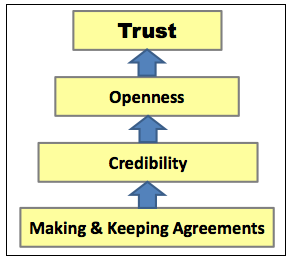Assimilation & Socialization
The new employee needs to understand what is valued within its organization, how decisions are made, how problem solving is done and what defines success. It is equally important to understand the organization’s “communication culture” – exploring how business results are shared; learning whether it is best to send an email, make a phone call or have a meeting; discovering whether employee ideas/feedback are welcome.
Organizations with assimilation processes and initiatives in place ensure new team members have resources to help them become productive, engaged team members in as short a time as possible. Taking into account the stress and issues that new employees experience, these processes and the management team can help cultivate a healthy, productive workplace. An employee will forever recall first impressions of their colleagues and customers. They’ll remember if their new manager and team were eagerly awaiting their arrival with smiles. They’ll remember how their assigned learning partner helped them through a maze of corporate confusion. They’ll remember the support they received from people that fully understand the challenges veterans face when transitioning to civilian work life.
Critical to assimilation are the relationships formed at the beginning and developed throughout the employee’s tenure. One cannot completely understand an organization’s culture until they get to know the people they interact with. The employee’s manager, their learning partner their colleagues and the affinity groups they choose to join can all help them navigate the new environment and facilitate interaction with the right people at the right time. Yet, the employee has ultimate responsibility for developing healthy relationships.
Developing trusting, productive relationships inside and outside the organization is essential to any position. But trust doesn’t occur overnight; it must be earned. A trusting relationship usually begins by making and keeping agreements with an individual. Once that foundation is in place, then the person will most likely be perceived as credible and the exchange of information becomes more open. If the relationship continues to flourish, then trust is earned.

